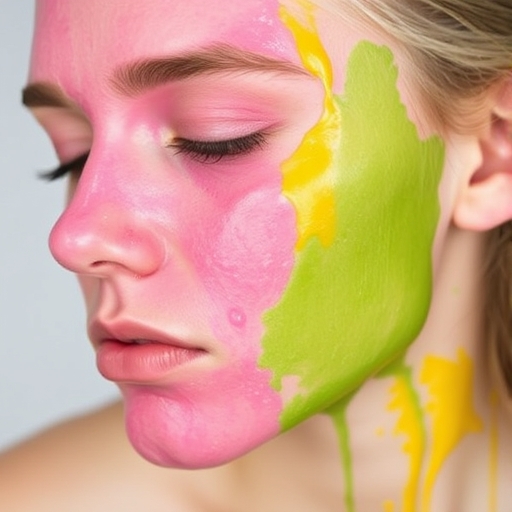Does Acrylic Paint Wash Off Skin?
Acrylic paint is a popular medium for artists, hobbyists, and DIY enthusiasts alike. Known for its vibrant colors and versatility, it can be used on various surfaces, including canvas, wood, and fabric. However, one question that often arises is: Does acrylic paint wash off skin? In this article, we will explore the properties of acrylic paint, its effects on skin, and how to safely remove it if it gets on your skin.
Understanding Acrylic Paint
Before diving into the specifics of acrylic paint and skin, it’s essential to understand what acrylic paint is and how it works.
What is Acrylic Paint?
Acrylic paint is a fast-drying paint made of pigment suspended in an acrylic polymer emulsion. It can be diluted with water but becomes water-resistant when dry. This feature makes it an attractive option for many artists.
Properties of Acrylic Paint
- Fast Drying: Acrylic paint dries quickly, making it ideal for layering and quick projects.
- Water-Soluble: While still wet, acrylic paint can be easily cleaned up with water.
- Durability: Once dry, acrylic paint is resistant to water and UV light, making it suitable for outdoor use.
- Versatility: It can be used on various surfaces, including paper, canvas, wood, and more.
- Non-Toxic: Most acrylic paints are non-toxic and safe for general use. They are often labeled as non-toxic, meaning they do not contain harmful chemicals that can cause severe irritation or allergic reactions.
- Irritation: Some individuals may experience skin irritation or allergic reactions due to specific ingredients in the paint. This is particularly true for those with sensitive skin or existing skin conditions.
- Staining: Acrylic paint can stain the skin, especially if left on for an extended period. The staining is generally not harmful but can be unsightly.
- Type of Paint: High-quality acrylic paints may be more resistant to washing off than cheaper alternatives.
- Skin Type: Oily or sweaty skin may allow paint to wash off more easily than dry skin.
- Duration of Contact: The longer the paint remains on the skin, the harder it may be to remove.
- Wear Protective Gear: Use gloves and aprons to protect your skin and clothing.
- Work in a Controlled Area: Set up your workspace to minimize the risk of paint splatters.
- Use a Palette: Work from a palette to control the amount of paint you are using.
- Clean Up Spills Immediately: If you spill paint, clean it up right away to avoid contact with your skin.
Acrylic Paint and Skin: What You Need to Know
When it comes to skin contact, there are several factors to consider. While acrylic paint is generally considered safe for use, it can still pose certain risks when it comes into contact with the skin.
Is Acrylic Paint Safe for Skin?
How Long Does Acrylic Paint Stay on Skin?
Acrylic paint can stay on the skin for varying lengths of time, depending on several factors:
How to Remove Acrylic Paint from Skin
If you find yourself with acrylic paint on your skin, don’t panic! There are several effective methods to remove it safely.
Method 1: Soap and Water
Steps:
1. Act Quickly: The sooner you try to remove the paint, the easier it will be.
2. Wet the Area: Use warm water to wet the painted area.
3. Apply Soap: Use a mild soap or dish soap and lather it on the affected area.
4. Rinse: Rinse thoroughly with warm water, repeating the process if necessary.
Method 2: Baby Oil or Mineral Oil
Steps:
1. Apply Oil: Pour a small amount of baby oil or mineral oil onto a cotton ball or cloth.
2. Rub Gently: Gently rub the area where the paint is located. The oil will help break down the paint.
3. Wash Off: After the paint has loosened, wash the area with soap and water to remove any oily residue.
Method 3: Rubbing Alcohol
Steps:
1. Dampen a Cotton Ball: Soak a cotton ball or cloth with rubbing alcohol.
2. Gently Rub: Dab and rub the area with the paint, being careful not to irritate the skin.
3. Wash Off: Rinse with soap and water afterward.
Method 4: Commercial Paint Remover
If the paint is particularly stubborn, you may consider using a commercial paint remover designed for skin.
Caution: Always read the label and ensure that the product is safe for skin use before applying it.
Tips for Preventing Acrylic Paint Stains
While accidents happen, here are some tips to help prevent acrylic paint from getting on your skin in the first place:
Frequently Asked Questions (FAQ)
1. Can acrylic paint cause allergic reactions?
Yes, some people may experience allergic reactions or skin irritation from acrylic paint. If you notice redness, itching, or swelling, discontinue use immediately.
2. Is it safe to use acrylic paint on skin for body art?
Acrylic paint is not recommended for body art or face painting, as it is not formulated for skin use. Use body-safe paints instead.
3. What should I do if I have a reaction to acrylic paint?
If you experience a severe reaction, seek medical attention. For mild reactions, wash the area with soap and water and apply a soothing lotion.
4. How can I prevent staining my skin with acrylic paint?
Wear gloves, protective clothing, and work in a controlled area to minimize the risk of staining.
5. Can I use hand sanitizer to remove acrylic paint from skin?
Hand sanitizer may help remove acrylic paint due to its alcohol content, but it can also dry out your skin. It’s best to follow up with a moisturizer afterward.
Comparison Table: Acrylic Paint vs. Other Paints on Skin
| Feature | Acrylic Paint | Oil Paint | Watercolor Paint |
|---|---|---|---|
| Drying Time | Fast | Slow | Fast |
| Water Solubility | Yes (when wet) | No | Yes (when wet) |
| Stains Skin | Yes | Yes | Yes |
| Toxicity | Non-toxic (usually) | Can be toxic | Non-toxic (usually) |
| Skin Contact Safety | Generally safe | Not recommended | Generally safe |
| Best Removal Method | Soap & Water | Oil or solvent | Water |
Conclusion
In summary, acrylic paint can wash off skin, but how easily it does so depends on various factors, including the type of paint, skin type, and duration of contact. While most acrylic paints are non-toxic and safe for general use, it’s essential to be cautious, especially for those with sensitive skin. If you find yourself with paint on your skin, there are effective methods for removal, including soap and water, baby oil, and rubbing alcohol. By taking preventive measures and using appropriate removal techniques, you can enjoy working with acrylic paint without the worry of stubborn stains on your skin.

